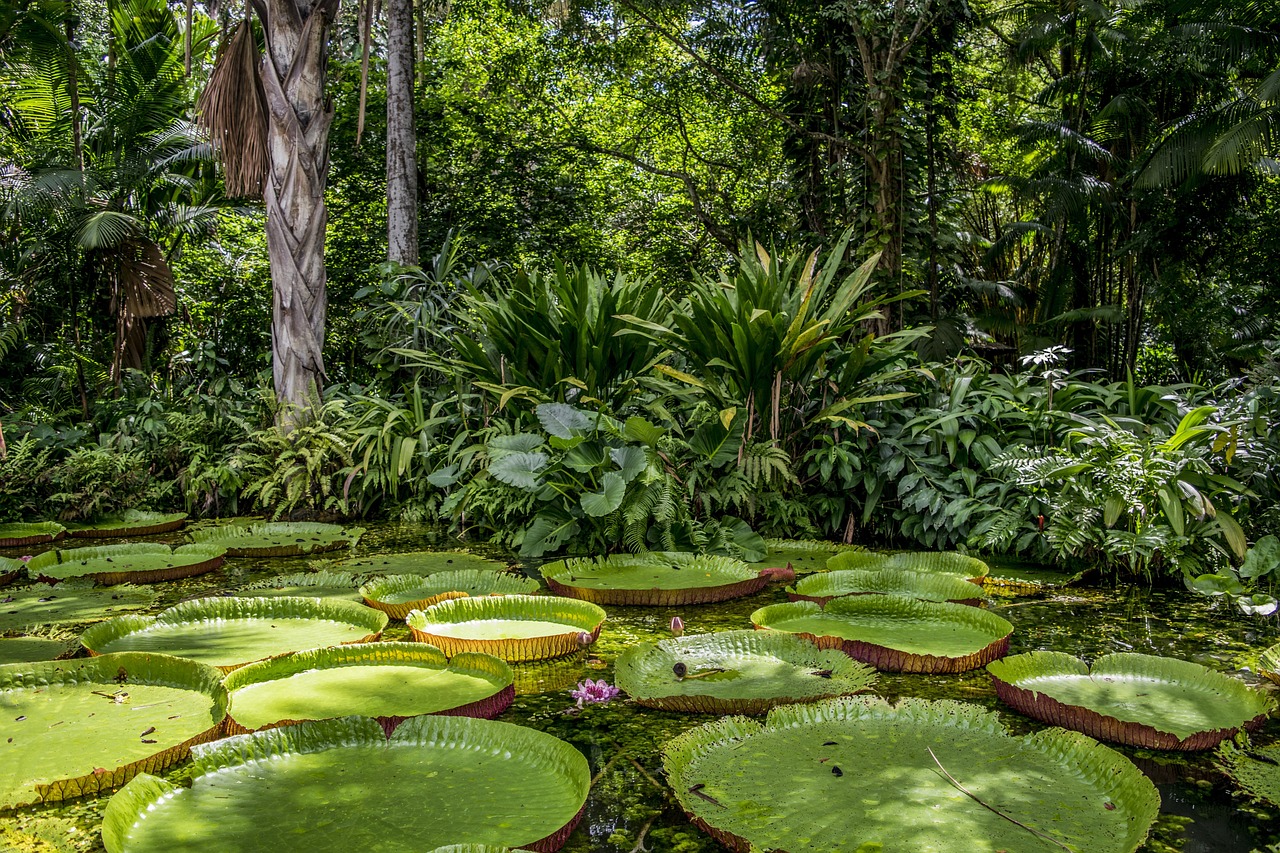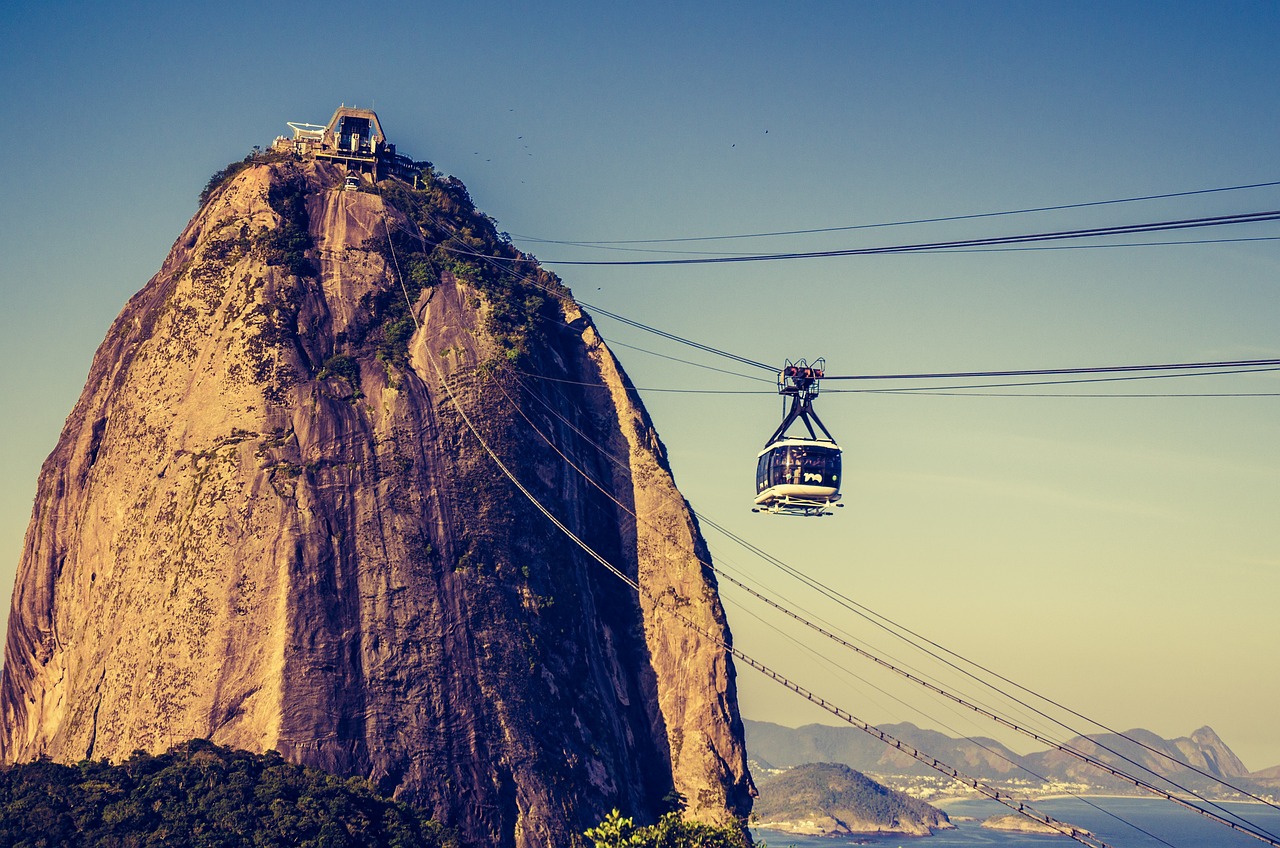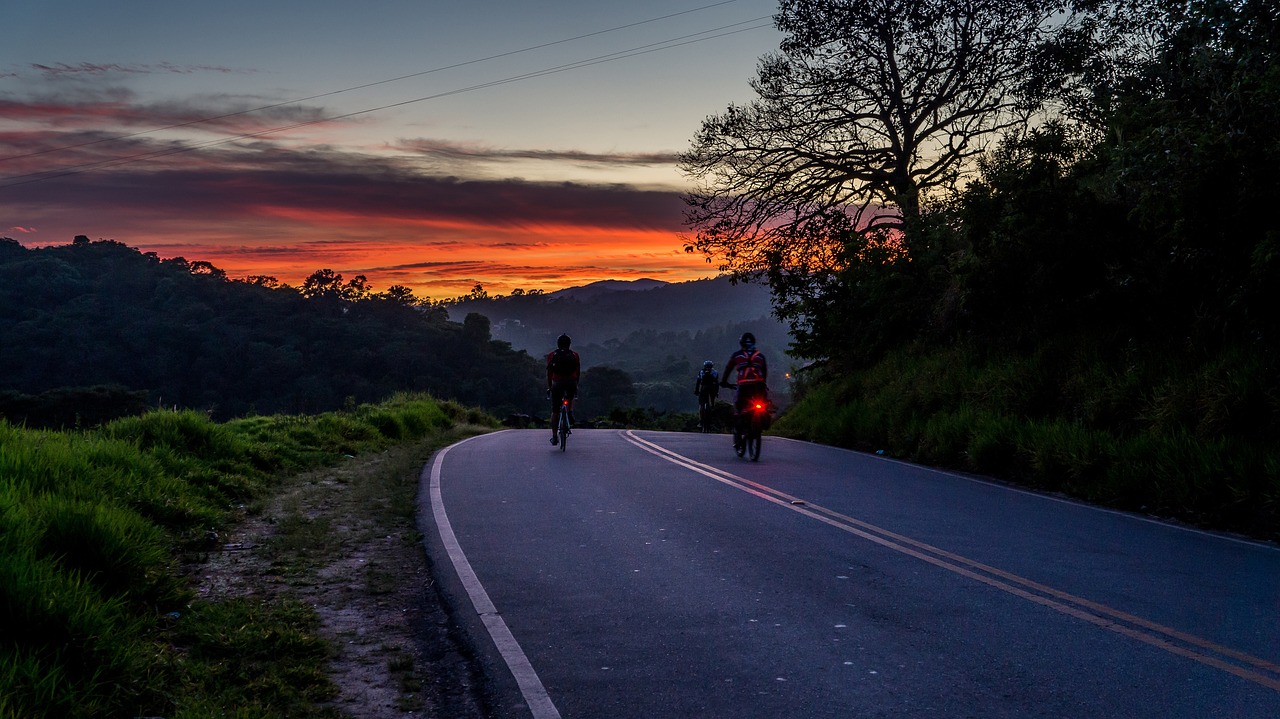Brazil Video
Local Markets in Brazil: Sourcing Fresh Produce and Goods
Brazil is known for its rich and diverse culinary traditions, and one of the best ways to experience the flavors of this country is by visiting the local markets. These bustling hubs of activity offer a wide range of fresh produce, spices, meats, and other goods, providing a glimpse into the vibrant food culture of Brazil. In this article, we will explore some of the top local markets in Brazil and discuss the unique offerings they provide. Whether you are a seasoned foodie or simply looking to immerse yourself in the local culture, these markets are a must-visit during your time in Brazil.
Section 1: Mercado Municipal de São Paulo
The Mercado Municipal de São Paulo, also known as the Mercadão, is a historic market located in the heart of São Paulo. This iconic market is famous for its stunning architecture and diverse range of products. Upon entering the market, visitors are greeted with an explosion of colors and aromas as they navigate through the bustling aisles.
- Fresh Produce: The Mercadão is a paradise for fruit and vegetable lovers. Here, you can find an impressive variety of tropical fruits, including exotic options like açaí, jabuticaba, and cupuaçu. The market also offers a wide selection of fresh vegetables, ensuring that you have access to the best ingredients for your culinary endeavors.
- Gourmet Delights: The Mercadão is not only a place to source fresh produce but also a hub for gourmet delights. From artisanal cheeses and cured meats to spices and specialty ingredients, the market offers a wide range of products that will elevate your cooking to new heights.
- Traditional Brazilian Snacks: While exploring the Mercadão, be sure to indulge in some of the traditional Brazilian snacks available at the various food stalls. Pastel, coxinha, and pão de queijo are just a few of the mouthwatering options that you can enjoy as you explore the market.
Section 2: Feira de São Cristóvão
Located in Rio de Janeiro, the Feira de São Cristóvão is a vibrant market that celebrates the culture and traditions of Northeastern Brazil. This market is a true representation of the region’s rich heritage, offering visitors a unique experience filled with music, dance, and delicious food.
- Northeastern Cuisine: At the Feira de São Cristóvão, you can savor the authentic flavors of Northeastern Brazilian cuisine. From traditional dishes like feijoada and acarajé to regional delicacies such as carne de sol and tapioca, the market is a haven for food enthusiasts looking to explore the culinary diversity of Brazil.
- Live Music and Entertainment: The Feira de São Cristóvão is not just a market; it’s a cultural hub. Throughout the market, you will find stages where live bands play traditional Northeastern music like forró and xote. Visitors can dance, listen to music, and immerse themselves in the vibrant atmosphere of the market.
- Handicrafts and Artisans: In addition to food and entertainment, the Feira de São Cristóvão is also a great place to discover unique handicrafts and artisanal products. From handmade clothing and accessories to traditional artwork and souvenirs, you can find a wide range of beautifully crafted items that showcase the creativity of the Northeastern region.
Section 3: Mercado Ver-o-Peso
Located in Belém, in the state of Pará, the Mercado Ver-o-Peso is one of the largest open-air markets in Latin America. This market is a true sensory experience, with vibrant colors, exotic aromas, and the constant buzz of activity.
- Amazonian Delicacies: The Mercado Ver-o-Peso is renowned for its wide variety of Amazonian delicacies. Here, you can find unique ingredients like açaí, tucupi, and jambu, which are essential components of traditional Amazonian dishes. The market also offers a selection of fresh fish and seafood, allowing you to taste the flavors of the Amazon.
- Medicinal Herbs and Plants: In addition to food, the Mercado Ver-o-Peso is a hub for medicinal herbs and plants. Traditional healers and herbalists gather at the market to sell their remedies and share their knowledge. Whether you are seeking herbal teas, natural remedies, or simply want to learn more about Amazonian plants, the market is a fascinating place to explore.
- Arts and Crafts: The market is not just about food; it also showcases the rich artistic traditions of the region. Local artisans sell beautifully crafted pottery, woodwork, and handmade jewelry, allowing visitors to take home a piece of Amazonian culture.
Brazil Image 1:

Section 4: Mercado Central de Belo Horizonte
The Mercado Central de Belo Horizonte, located in the capital city of Minas Gerais, is a must-visit for food lovers. This bustling market offers a wide range of products, from fresh produce and spices to traditional sweets and artisanal goods.
- Regional Delights: The Mercado Central is known for its regional specialties, such as pão de queijo (cheese bread), doce de leite (caramelized milk), and cachaça (sugarcane liquor). These iconic flavors of Minas Gerais can be found in various stalls throughout the market, allowing visitors to indulge in the local cuisine.
- Coffee Culture: Brazil is famous for its coffee, and the Mercado Central is a great place to explore the country’s coffee culture. Here, you can find a wide selection of freshly roasted beans, coffee accessories, and even attend coffee tasting sessions to learn more about the different flavors and brewing methods.
- Artisanal Products: The market is also home to numerous artisanal shops selling handmade products like textiles, ceramics, and traditional crafts. These unique items make for excellent souvenirs or gifts to take back home.
Section 5: Mercado Modelo
Situated in Salvador, Bahia, the Mercado Modelo is a historic market that showcases the Afro-Brazilian culture and heritage of the region. Originally a customs house, the market is now a vibrant space where visitors can immerse themselves in the traditions of Bahia.
- Afro-Brazilian Cuisine: The Mercado Modelo is a fantastic place to sample the flavors of Bahian cuisine. From acarajé (deep-fried black-eyed pea fritters) to moqueca (a seafood stew), the market offers a wide range of dishes that highlight the unique fusion of African, Indigenous, and Portuguese influences.
- Handicrafts and Souvenirs: The market is known for its extensive collection of handicrafts and souvenirs. Local artisans sell traditional items like hand-carved wooden sculptures, vibrant paintings, and intricate beadwork, allowing visitors to take home a piece of Bahian culture.
- Capoeira and Music: Capoeira, a Brazilian martial art with African roots, is an integral part of Bahian culture. At the Mercado Modelo, you can witness capoeira performances and even participate in classes to learn the basic moves. Additionally, the market features live music and dance performances, providing a truly immersive cultural experience.
Brazil Image 2:

Section 6: Mercado Público de Porto Alegre
The Mercado Público de Porto Alegre, located in the capital city of Rio Grande do Sul, is a vibrant market that reflects the European influence in the region. With its stunning architecture and diverse offerings, the market is a popular destination for locals and tourists alike.
- Gaucho Cuisine: The market is a haven for lovers of Gaucho cuisine. Here, you can find traditional dishes like churrasco (barbecue), feijoada, and chimarrão (a traditional herbal tea). The market also offers a variety of regional products, including cured meats, cheeses, and wines.
- Seafood and Fish Market: Porto Alegre is known for its proximity to the coast, and the Mercado Público is an excellent place to sample fresh seafood. The market has a dedicated area for fishmongers, where you can find a wide variety of fish, shellfish, and other ocean delights.
- Artisanal Products: The market is home to numerous artisanal shops selling handmade items like leather goods, wool products, and traditional artwork. These unique products showcase the craftsmanship of the region and make for memorable souvenirs.
Section 7: Mercado Modelo de Caruaru
The Mercado Modelo de Caruaru, located in the city of Caruaru in Pernambuco, is a vibrant market that celebrates the culture and traditions of the Northeastern region of Brazil. Known as the “Capital do Forró,” Caruaru is famous for its lively music and colorful festivals.
- Forró Music and Dance: The Mercado Modelo de Caruaru is a hub for forró music and dance. Visitors can enjoy live performances, learn the basic steps, and immerse themselves in the infectious rhythms of this traditional Brazilian genre.
- Handicrafts and Artwork: The market is renowned for its extensive collection of handicrafts and artwork. Local artisans sell beautifully crafted items like clay figurines, embroidered textiles, and woven baskets, allowing visitors to take home a piece of Northeastern culture.
- Regional Cuisine: Caruaru is known for its delicious regional cuisine, and the market offers a wide range of traditional dishes. From bolo de rolo (a rolled cake) to tapioca, you can indulge in the flavors of the Northeast and experience the unique culinary heritage of the region.
Brazil Image 3:

Section 8: Feira Hippie de Ipanema
The Feira Hippie de Ipanema, located in Rio de Janeiro, is one of the largest open-air markets in Brazil. This vibrant market is a haven for art enthusiasts and souvenir hunters, offering a wide range of handmade products.
- Art and Handicrafts: The Feira Hippie is known for its extensive collection of art and handicrafts. Local artists sell paintings, sculptures, ceramics, and jewelry, showcasing their creativity and talent. This is the perfect place to find unique souvenirs or add to your art collection.
- Fashion and Clothing: In addition to art, the market also features a wide selection of clothing and accessories. From bohemian-style garments to handmade leather goods, you can find trendy and unique fashion items at affordable prices.
- Food and Refreshments: As you explore the market, you’ll find various food stalls offering delicious snacks and refreshing drinks. From traditional Brazilian street food to international cuisines, the Feira Hippie has something to satisfy every palate.
Section 9: Feira de Caruaru
The Feira de Caruaru, located in the city of Caruaru, is one of the largest open-air markets in Latin America. This bustling market is a melting pot of colors, flavors, and traditions, attracting visitors from all over Brazil.
- Crafts and Artwork: The Feira de Caruaru is renowned for its extensive collection of crafts and artwork. Local artisans showcase their skills through handmade items like pottery, woodwork, lacework, and embroidery. The market is a treasure trove for those seeking unique and authentic Brazilian handicrafts.
- Traditional Clothing and Accessories: The market is also a great place to find traditional clothing and accessories. From colorful handmade dresses to intricately designed leather sandals, you can embrace the vibrant culture of the region through its fashion.
- Regional Cuisine: Caruaru is known as the “Capital do Forró,” and the market offers a wide variety of traditional Northeastern dishes. From tapioca pancakes to carne de sol, you can indulge in the rich flavors of the region and experience the culinary heritage of Caruaru.
Section 10: Mercado Municipal de Curitiba
The Mercado Municipal de Curitiba, located in the capital city of Paraná, is a charming market known for its beautiful stained glass windows and diverse offerings. This architectural gem is a popular destination for both locals and tourists.
- Fresh Produce and Gourmet Products: The Mercado Municipal is a paradise for food lovers. Here, you can find a wide range of fresh fruits, vegetables, meats, and seafood. Additionally, the market offers a variety of gourmet products, including cheeses, wines, and spices.
- Flowers and Plants: In addition to food, the market is home to a vibrant flower and plant section. Visitors can browse through a colorful array of flowers, plants, and gardening accessories, making it a perfect spot for nature enthusiasts.
- Restaurants and Cafés: The market features several restaurants and cafés where you can enjoy a meal or a cup of coffee. From traditional Brazilian dishes to international cuisines, the Mercado Municipal has something to satisfy every palate.
Section 11: Mercado Central de Fortaleza
The Mercado Central de Fortaleza, located in the capital city of Ceará, is a bustling market that offers a wide range of products, from fresh seafood and regional delicacies to handmade crafts and souvenirs.
- Seafood and Regional Cuisine: The market is a paradise for seafood lovers. Freshly caught fish, shrimp, lobster, and other ocean delights are available in abundance. Additionally, the market offers a variety of regional dishes, allowing visitors to sample the flavors of Ceará.
- Handicrafts and Souvenirs: The Mercado Central is known for its extensive collection of handicrafts and souvenirs. From lacework and embroidery to leather goods and ceramics, you can find beautifully crafted items that represent the culture and traditions of Ceará.
- Traditional Herbal Remedies: The market is also a hub for traditional herbal remedies. Local herbalists and healers offer a wide range of medicinal herbs and plants, providing visitors with natural remedies and insights into traditional healing practices.
Section 12: Mercado de Peixes de Manaus
The Mercado de Peixes de Manaus, located in the city of Manaus, is a vibrant market known for its abundance of fresh fish and seafood. Situated in the heart of the Amazon rainforest, this market offers a unique culinary experience.
- Fresh Fish and Seafood: The Mercado de Peixes is a haven for seafood lovers. Here, you can find a wide variety of freshwater fish, including tambaqui, pirarucu, and surubim. The market also offers a selection of prawns, crabs, and other Amazonian delicacies.
- Exotic Fruits and Ingredients: In addition to seafood, the market is a great place to explore the diverse range of exotic fruits and ingredients from the Amazon rainforest. From açai and cupuaçu to tucupi and priprioca, you can discover unique flavors that are synonymous with the region.
- Local Cuisine: The market features several food stalls where you can sample traditional Amazonian dishes. Whether you are craving a hearty fish stew or want to try a grilled pirarucu, the Mercado de Peixes is the perfect place to indulge in the flavors of the Amazon.
References:
- Mercado Municipal de São Paulo: mercadomunicipalsp.com.br
- Feira de São Cristóvão: feiradesaocristovao.org.br
- Mercado Ver-o-Peso: mercadoveropeso.com.br
- Mercado Central de Belo Horizonte: mercadocentral.com.br
- Mercado Modelo: mercadomodelossa.com.br
- Mercado Público de Porto Alegre: mercadopublico.com.br
- Mercado Modelo de Caruaru: mercadomodelocaruaru.com.br
- Feira Hippie de Ipanema: feirahippederiopreto.com.br
- Feira de Caruaru: feiradecaruaru.com.br
- Mercado Municipal de Curitiba: mercadomunicipaldecuritiba.com.br
- Mercado Central de Fortaleza: mercadocentraldefortaleza.com.br
- Mercado de Peixes de Manaus: mercadodepeixes.com.br

